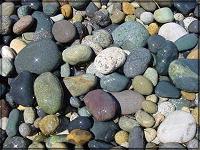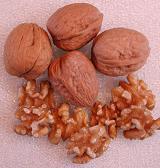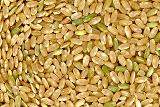You’re buying lunch for a group of people, and the man at the counter says, $22.11. But you know the total is $42.11. You say, “Um, excuse me, it’s $20 more.” He says, “Oh, let me see – oh, thank you, that’s great! That’s great. Thank you.”
And you stand at the counter among the chips and the chewing gum while he rings your credit card through again. And you mumble to yourself, “It’s hard to be good.”
…”What?” he actually heard you. “You mean it’s hard to not eat the chocolate bars we have here? Oh, come on, get it anyway, don’t worry, you’re not being bad!”
I says, “Thanks, bye,” and I leave. I wasn’t talking about any chocolate bar. I was talking about how it’s hard to put yourself in a position of rightness when being unright is easy. And there are many situations where being unright is easy and being right is not easy. Returning the shopping cart to the shopping cart drop-off. Not being bad to your body, and instead eating healthily. Not taking your temper out on people you know well, but curbing it, or announcing, I have a temper, and I’m not going to speak loudly right now, or it’ll run away. Doing exercise. Taking time for yourself instead of overburdening. Finishing all the most important priorities first. Not giving in to excesses, like drinking, eating, smoking, etc.
All of us know that those things are GOOD. But are they necessary?
Maybe they are.
Why might they be necessary? The good things. The this-can-be-helpful and this-is-a-strong-should things. They could be necessary for two reasons:
1) The Universe Knows. The universe knows when things are right and things are good. The universe knows when you are clean and right and good. The universe knows when you have justice, truth, peace, beauty, and accountability on your side. The universe knows.
2) Aristotle says, “Do good.” Aristotle makes a multi-part argument about the goal of people, how people desire to reach the highest good, how people can achieve that highest good for themselves, and what the highest good must be for mankind.
Here is the summary of Aristotle’s thoughts:
* The highest human good – the underlying reason why people do anything (if you peel back enough layers) – is happiness, the desire for happiness.
* There are many definitions of happiness (pleasure, virtue, study), but most people agree even within happiness there is a highest possible type of good that would would be universal and single and would subsume the other goods.
* What is that highest possible type of good?
* (This part added by me: if you look at a knife, the best it can do is to be the best kind of knife – sharp, precise, the best qualities of the knife). If you look at a flutist, says Aristotle, then his highest good is to be the best possible flutist. For a craftsperson, to be the best possible craftsperson. And what about for a human?
* Aristotle says, it is to be the best possible human! And to be the best possible human, a person needs to seek goodness – to do good things, to do virtuous things – because those are the highest, best possible ways of being for a human.
Finally, similar to the idea of “the universe knows,” Aristotle says, “Happiness is acquired by virtue, and hence by our own actions, not by fortune.”
Aristotle starts his second chapter by instructing how to achieve virtue, and then from that, happiness: “Virtues … we acquire, just as we acquire crafts, by having previous activated them.” Thus Aristotle instructs us on having good habits. “So also, then, we become just by doing just actions, temperate by doing temperate actions, brave by doing brave actions.”
Therefore, doing good makes us good which is the highest thing a human being can do, and thus this will in the long run make us happiest.
Recommended Reading: Nichomachean Ethics and Leadership and Self-Deception.
Note: More to come on this topic.


